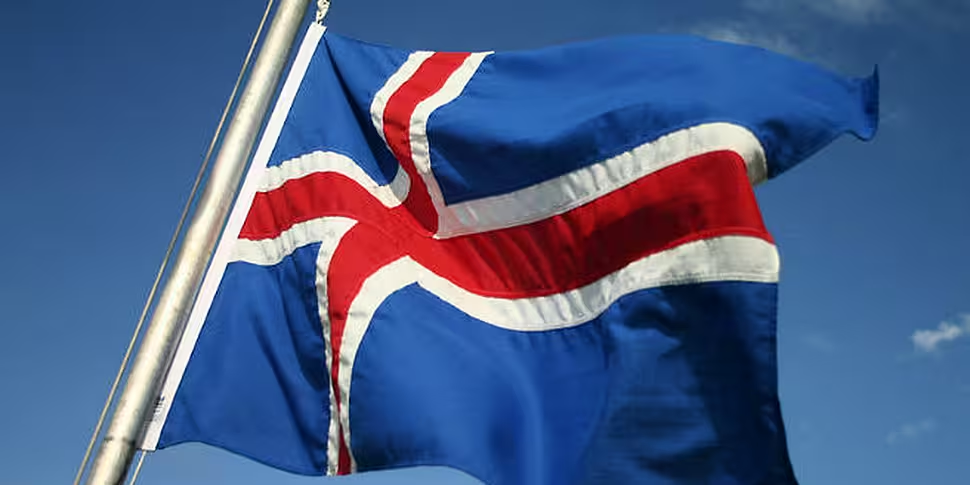Every January, right in the middle of the freezing winter that batters little Iceland, the country’s women dote on the menfolk.
The day is called Bóndadagur, Icelandic for ‘Husbands Day’, and sees the men spoiled with traditional treats like hákarl, putrescent shark meat. If it seems odd that Iceland, the country that has just been named by the World Economic Forum as the best for gender equality for the sixth year in a row, celebrates its husbands so readily, fear not; exactly one month later they have Konudagur, with Reykjavík’s wives hacking into the hákarl instead.
Topping the Global Gender Gap Report isn’t particularly big news in the country the national tourist board boasts as the Land of the Nice. “It just says on the front page of our newspapers, ‘Iceland’s first for gender equality. As per usual’,” says Silja Bára Ómarsdóttir, an adjunct lecturer in political science at the University of Iceland.
For many, Iceland is the plucky pin-up of the credit crisis world; six years ago, Prime Minister Geir Haarde made his infamous ‘God bless Iceland’ address to a stunned nation, telling them the country had gone bust.
But ignoring the austerity policies invoked all over the world, the 327,000 Icelanders bounced back, electing Jóhanna Sigurðardóttir, an openly gay woman, to come in and clean house.
And she did, issuing in gender quota laws for the country’s boardrooms, and staffing her ministerial cabinet with more women than men.
Now, the country’s unemployment rate is down below 5%, Iceland is heralded as a leader in gender equality, and has a booming tourist and green energy economy.
Sigurðardóttir’s reward for steering the country out of dark waters? Ousted from office in a 2013 election that saw a return to government of the Progressive Party. And as for Haarde? Well he was tried on four criminal charges, found guilty of one, and is now the Icelandic Ambassador to the US, the most sought-after position in the nation's diplomatic corps.
“It’s a bit awkward for us, as the current government doesn’t really have a feminist agenda,” says Silja, on the line from Reykjavík.
Awkward, and even a little embarrassing. The Progressive Party, in coalition with the Independence Party, recently came in for a lot of international criticism for its attitudes to women.
In late September, the foreign minister became the butt of countless online jokes when he announced that Iceland’s contribution to HeForShe, a global movement started by actress Emma Watson to get men and boys talking about feminism, would be to co-host a male-only conference on women’s issues. Over the following days, Gunnar Bragi Sveinsson’s ministry had to back down, saying women would be involved in some of the events at the ‘Barbershop’ conference – but still excluded from the majority.
There's something more worrying than the January conference with Suriname, though; the wage gap between Icelandic men and women, the sons and dóttirs, has been growing. In September, the SFT, a public service union counting some 7000 members, reported that the wage gap had risen from 7% to 10% this year. Bad news for the country’s women, who statistically suffered more hardship during the recession than their male counterparts.
“We are proud as Icelanders to still be maintaining our presence as world leaders in equality, but we’re aware that it’s something we can still have work on,” says Silja.
“But as a colleague of mine said, all we are is the best at not being the worst. The gender gap still exists, even in Iceland.”
Best at being the worst is perhaps a little cool, but Icelanders are not known for their emotional demeanours. What they are known for is the ability to react. The country addresses women’s issues with a level-headed approach.
Take, for instance, Iceland’s immigration laws; in the past, migrant women who divorced their husbands within three years of setting foot on Icelandic soil used to have their residency revoked. The country’s Centre for Gender Equality advised the government that this would tacitly encourage women to stay in abusive relationships. So they changed the law to reflect this, and now the country won’t even issue a visa to women who cohabit with partners known to be violent or abusive.
“We’re very big on policy here,” Silja says, “Our drive for equality is about breaking gender roles. We do things like legislate for paternity leave, and encourage men and fathers to be active in family life.”
Of course, not everyone in the country is happy with how traditional gender roles are being challenged. The far-right media and political representatives, the kind who point to the recent reports that the number of poor children in Iceland just rose by 9%, are vocal critics of female-interest policies.
“Yes, they can be a hassle. The far right here keep saying that you can’t get anything done in Iceland if you’re not in the feminist mafia,” says Silja.
But for all of Iceland’s progressive policies and feminist thinking, there’s still one thing that supersedes the Icelanders' interest in eliminating inequality. And bizarrely enough, it's grammar.
Pronouns in Icelandic have become a prickly issue over the years, because they force women to become men.
The Icelandic language has three genders and very strict rules about using them. Many of the words associated with prestige positions in government, like Prime Minister, President, etc, are all masculine. Meaning when Jóhanna Sigurðardóttir swooped like a victorious Valkyrie to the top office in the land, her role as its officer was as a he. The Prime Minister is always he, the decisions are always his – regardless of her gender.
On that point, Silja is resilient. “Most of the time, I just used her name rather than he. It was annoying sometimes. But we really love grammar.”









